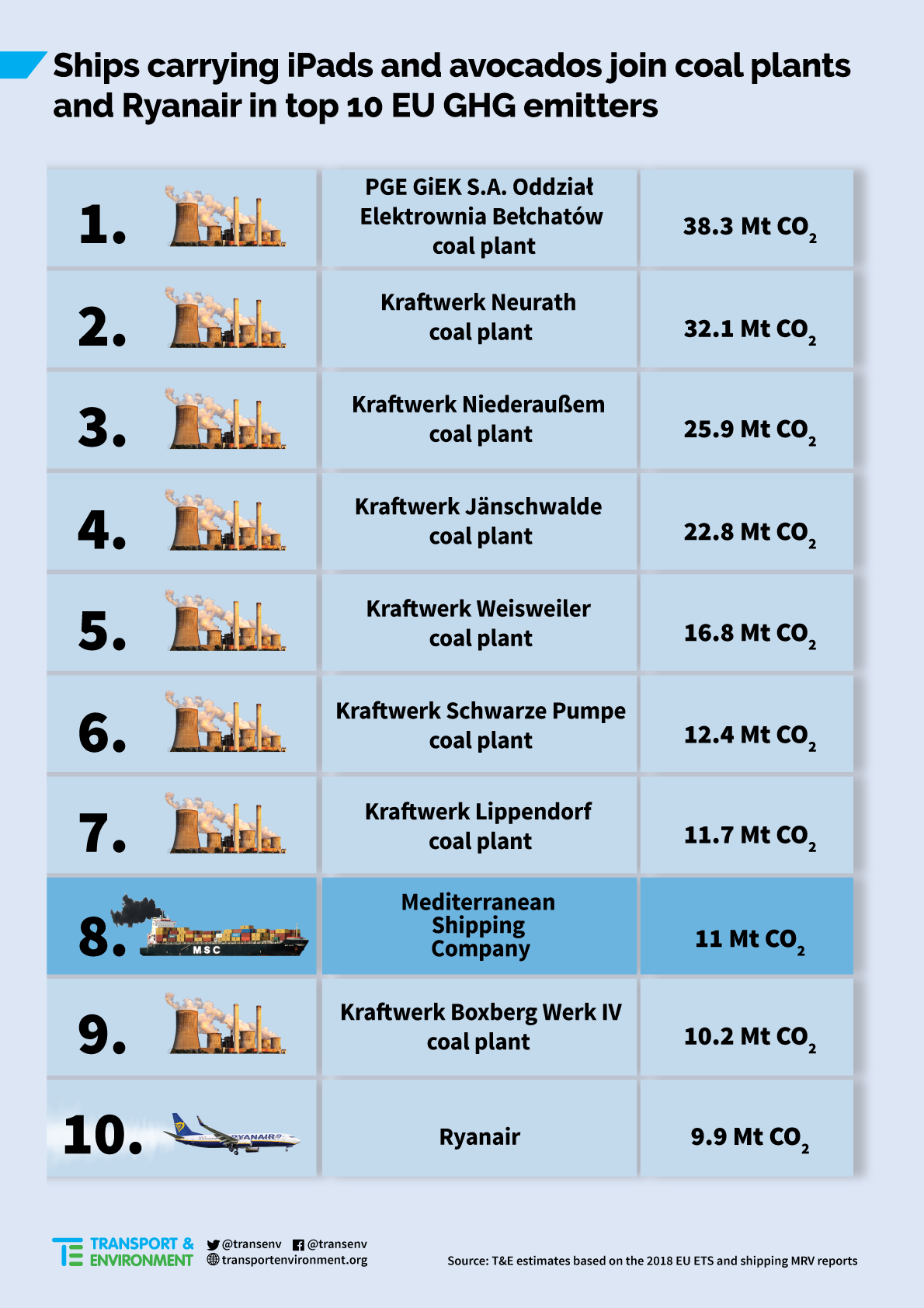
Interested in this kind of news?
Receive them directly in your inbox. Delivered once a week.
Guided by these goals, a key finding of this study is that container shipping operator, Mediterranean Shipping Company (MSC), joined coal power plants in the EU’s top 10 emitters list in 2018. MSC was responsible for about 11 Mt of CO2 from operations falling under the scope of the EU MRV. If shipping were part of the EU ETS, this would make MSC the EU’s 8th most emitting operator.
Secondly, this study concluded that there is a large performance (i.e. gCO2 emitted per tonnenautical mile) gap between ship design standards and real-world maritime operations. Due to this performance gap, half the EU cargo shipping emitted about 22 Mt more CO2 than what it would have emitted if ships operated according to their design standard. If one assumes the same trend would be observed in the remaining part of the fleet, one-third of EU shipping emissions could be attributed to the performance gap. This highlights the inadequacy of the ship design standard as a regulatory tool to decarbonise the sector.
Thirdly, the report revealed that CO2 emitted by shipping attributed by this study to the Netherlands, Belgium, Norway, Latvia and Estonia in 2018 was larger than or comparable to CO2 emitted by the total national passenger car fleet in those countries. In France, Germany, UK, Spain, Sweden, and Finland, shipping emissions in 2018 were larger than the emissions from all the passenger cars registered in 10 or more of the largest cities in each country. The analysis shows that approximately 20% of the EU maritime CO2 was emitted by ships transporting fossil fuels, namely, coal, crude oil, and LNG. In France, Norway, and Latvia, this figure is above a third of the total national maritime emissions attributed by this study to those countries.
Lastly, the study recommends including EU shipping in the EU Emissions Trading Scheme (ETS) via the establishment of a European Maritime Climate Fund to ensure the sector pays for its carbon pollution. In addition, the report recommends mandating operational EU CO2 standards to shipping (covered under the MRV scope) in order to cut emissions and drive the uptake of energy efficiency technologies and zero-carbon fuels/energy.


